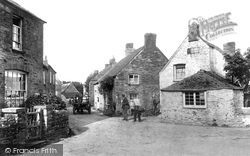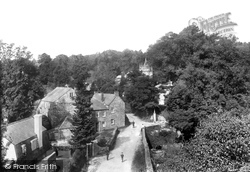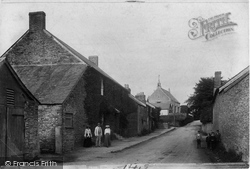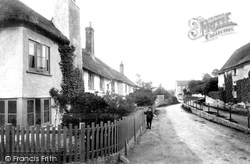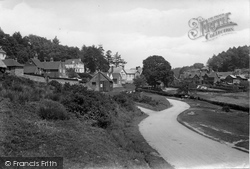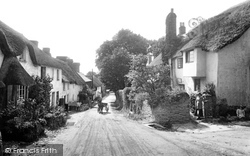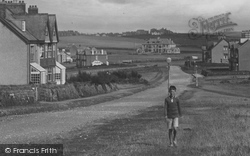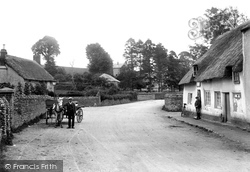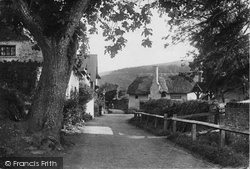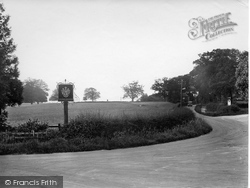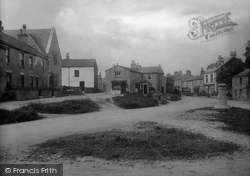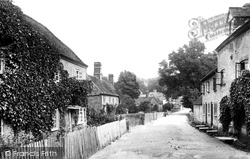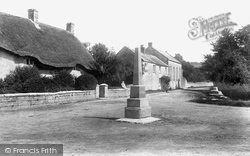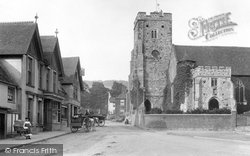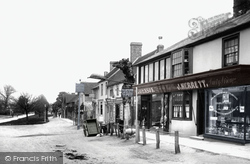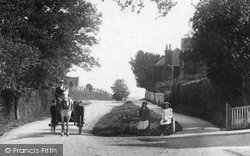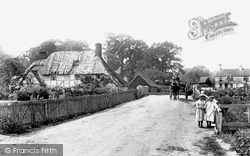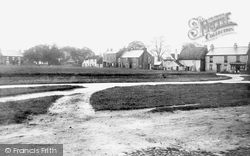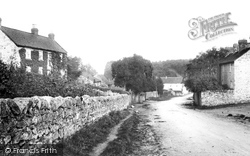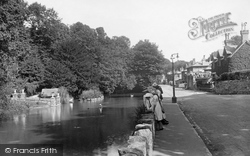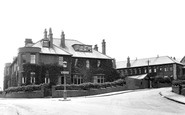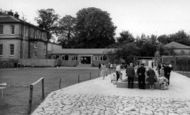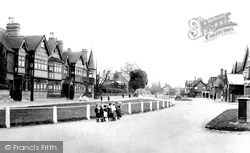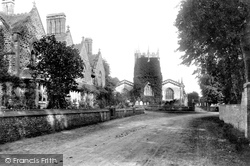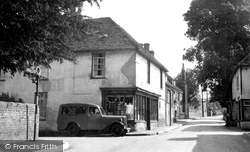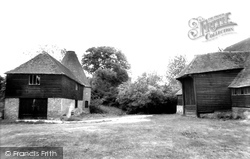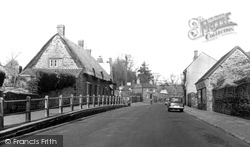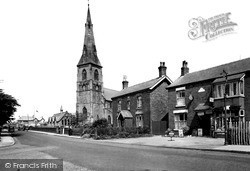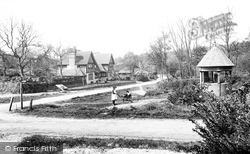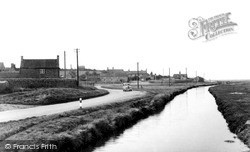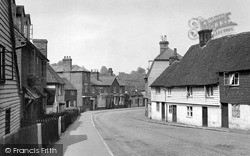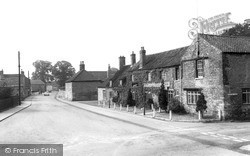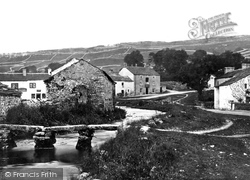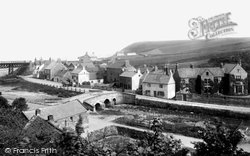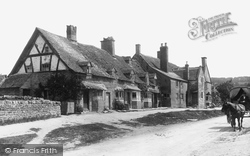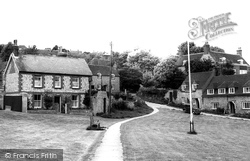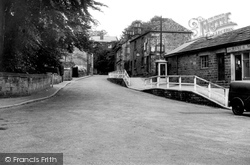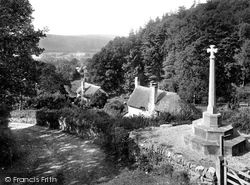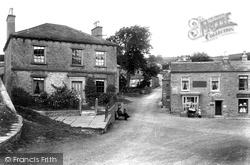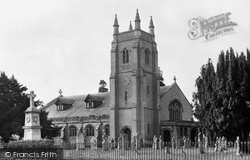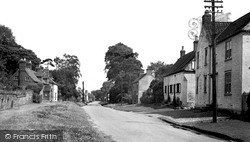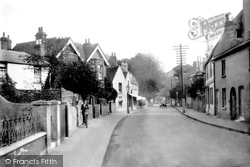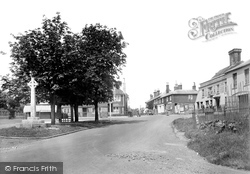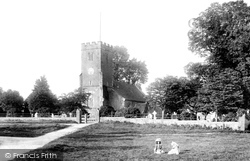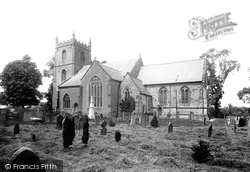Places
5 places found.
Those places high-lighted have photos. All locations may have maps, books and memories.
Photos
9,649 photos found. Showing results 81 to 100.
Maps
18 maps found.
Books
13 books found. Showing results 97 to 13.
Memories
4,612 memories found. Showing results 41 to 50.
Living In Hopton On Sea
My memory was triggered by the person writing about the Constitutional Camp's hall/ballroom building being burnt down. At the time I was attending the Primary School in the village and we could see the smoke and flames ...Read more
A memory of Hopton on Sea by
Grandfather Hatcher
My grandfather, Frederick John Scott Hatcher, married a Guernsey girl, Alice Bougourd. There are Bougourds buried in the Churchyard at Haselbury. I believe the family lived in Haselbury Plucknett, and I know that ...Read more
A memory of Haselbury Plucknett in 1860 by
Our Lives In Yapton 1982 2005
My family moved to Yapton, from Folkestone Kent, because my husband had a job there. It was a difficult time but I was expecting a baby and I had a 3 year old son so it was also an exciting time for us. Over the years ...Read more
A memory of Yapton in 1982 by
Tosh And I And Easy Pickings
Tosh and I and easy pickings Hi everyone, It's me again with the continuation of my wee story. I was taken by surprise how many people liked and responded to ...Read more
A memory of Newarthill by
Good Old Days.....
I was a "Calder girl" from 1951 or 52 to 1959. I didn't like it much at the time, but now of course, I have many, many memories. I know so many of the hymns in the English hymn book because we had to learn them for punishments. Not ...Read more
A memory of Seascale by
The Hostels 1956 65
I lived in the hostels from 1956 to 1965, firstly in 5 Ty Draw Square (around the back of the nursery school), and later in 17 Heol-y-Ynys, right next to the square (where we played football, cricket and kick the tin). As well as ...Read more
A memory of Abergarw by
Happy Childhood Holidays
I say 1950 for the year my memory relates to but in fact my memories cover from around 1946 to 196 I've only just found this web site for "Memories" although have looked at the site before and what nostalgia it has ...Read more
A memory of Llwyngwril in 1950 by
Honeysuckle Snack Bar And Surrounds
The large house in the background to this photo was originally the village rectory and was bought by Pentland Hick, the owner and founder of the zoo, and it became his family home for several years, later to ...Read more
A memory of Kirby Misperton by
So Many People!
I was five years old in 1953 and the coronation of Queen Elizabeth II was the first vivid memory I have of my childhood. We lived at Midway, Cold Ash Hill, the major road through the village. Dressed as a pirate with silver buckles ...Read more
A memory of Cold Ash by
Henry Bailey, The Reverend 93, And Two Old Friends From 70 Years Ago.
You mention two boys from long ago who were my friends. I wonder if they are still alive. Ridley became head boy at Ravenscroft, if my memory serves me right, and I believe ...Read more
A memory of Beckington by
Captions
5,016 captions found. Showing results 97 to 120.
A group of young children are seen standing in front of a barrier in Datchet village.
Frampton, 'the settlement on the Frome', is an attractive downland village north-west of Dorchester. The old manor house of Frampton Court was demolished in 1939.
This lovely old picture of the village centre shows the Post Office and a Post Office van outside.
Brook is still a beautiful village, despite being something of a dormitory for the expanding town of Ashford nearby. Here we see a group of picturesque old weatherboarded farm buildings.
A mile or two to the west of Northampton, the village of Duston is steeped in history.
Overlooking the main road through the village is the church of the Holy Trinity. It was built in the 1880s to replace an earlier church dedicated to St Mary.
The village can be reached from a number of directions, but each one is a minor road, and consequently it remains a quiet spot.
The village and salt marshes here have had an uneasy relationship over the years.
Constructed during the 1880s, Vyrnwy was the first of the massive reservoirs of Powys. The village of Llanwddyn was drowned, but it can still be seen in times of drought when the water level drops.
Lamberhurst was an ironworking centre between the 16th and the 18th centuries.
The village lost its medieval church to bombs in World War II and has expanded much since the War, partly due to Lincoln's proximity and partly to the RAF.
The limestone cliffs, crags and scars make the setting for Malham a delight for urban eyes. The beck that flows over the cliff separates the village into western and eastern sections.
A horse and cart trundles along the road spanning East Beck, one of two streams that meander through the village - the other is Sandsend Beck.
Both Charles I and Oliver Cromwell stayed in the village during the Civil War.
Continuing south, cross the Eastbourne to Seaford road into the centre of East Dean village with its steep winding lanes.
The recent history of the ancient village of East Keswick is inextricably linked with the fortunes of the nearby 'big house' of Harewood.
The village is part of the Holnicote Estate, the gift of the Acland family to the National Trust, to which many of the village's thatched cottages now belong. Their preservation is thus assured.
In the manor of Little Askrigg we find this road junction - if we go right, we reach Carperby (4 miles) and Leyburn (12 miles). Behind Woodburn House, left, was the village brewery.
Approaching the village from the west along the Botley Road, we see on the right All Saints' Church, built in 1836 in Early English style. The village war memorial is on the left of the picture.
The village was built around Walkington Hall, and has a charming village pond.
Large open fields surrounded many of the coastal plain settlements, and through the villages passed a solitary narrow street, often named after the village.
The village of Ticehurst is situated on a gentle slope surrounded by fertile valleys and hills, where hops were once extensively grown.
The western suburbs of Bridgwater grew in the late 19th century to incorporate the village of Wembdon, whose church was at the far east end of the village. In 1906 it looks remarkably rural.
The village church was far larger than the local population could support.
Places (5)
Photos (9649)
Memories (4612)
Books (13)
Maps (18)


